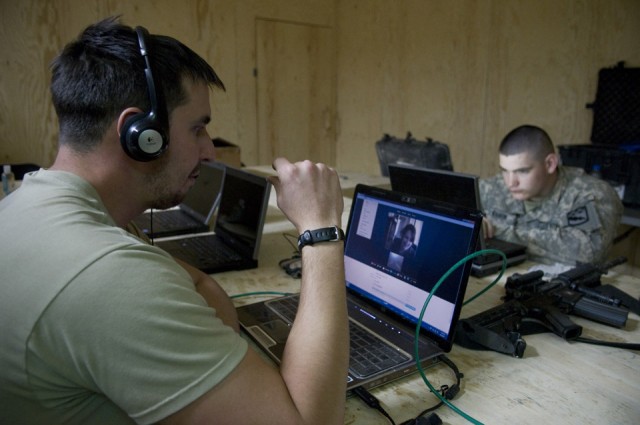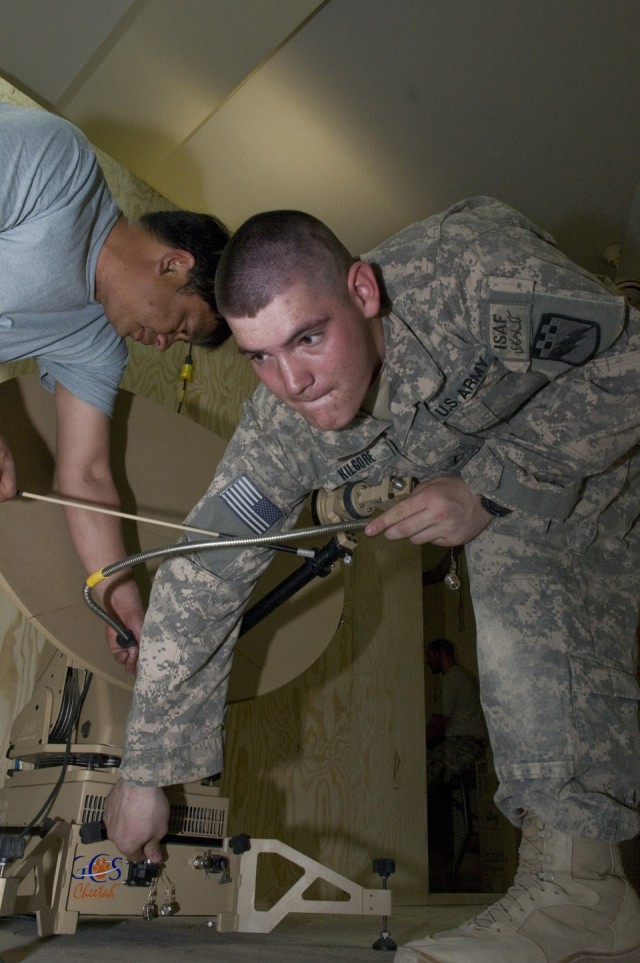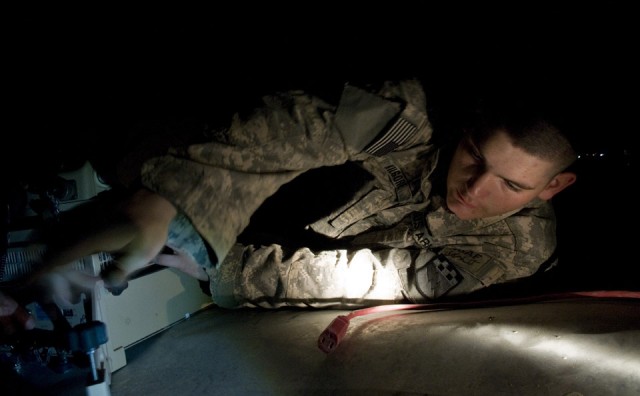SPIN BOLDAK, Afghanistan -Soldiers from the 525th Battlefield Surveillance Brigade working at the Operational Coordination Center District in Spin Boldak, Afghanistan can communicate with loved ones in the United States at no cost-thanks to the newly installed morale satellite program.
The satellite, known as the Cheetah system, is an auto-acquiring portable satellite receiver that provides high-speed data communications for internet and phone connections for Soldiers at remote operating bases.
The system is meant to support troops with no other means of morale, welfare and recreation connectivity, said Master Sgt. Glynn Honts, noncommissioned officer in charge of the Combined Joint Communications office at Regional Command-South, Kandahar Airfield, Afghanistan.
Honts said the system is being used at small combat outposts that have less than 100 U.S. servicemembers.
There are more than 100 systems already in place throughout Afghanistan. Honts has distributed 17 additional systems and will deliver seven more this summer as new units set up locations.
The telephone calls home are free and internet connection is fast, said Honts, the 22-year veteran. He added that the portable system is user friendly; it can be installed within 30 minutes and it runs off of a generator or a Humvee battery.
"Its best feature is that it self-acquires," said Honts. "To be able to find a satellite 22,236 miles out in space is no easy task, manually. This system is able to find that one specific satellite by itself. It takes a burden off of the operator as well as speeding up the process of getting connected. It is also a lot faster than any government computer."
With six new laptops and two telephones installed at the OCCD providing faster links to the homefront, Soldiers can maintain emotional connections with family and friends through video teleconferencing, social networking sites and conversations.
Honts, a Dayton, Ohio, native said maintaining the bond back home lifts Soldiers' spirits and provides a twofold benefit while they carry out their missions.
"When morale is high, Soldiers do their jobs with a sense of ease and the qualities of their efforts are better," he said. "These happy Soldiers continually surprise and exceed their leadership's expectations. Communication amongst the team is enhanced."
While there may only be a couple dozen Soldiers working from the OCCD at one time, the days and nights spent there has improved, according to one Soldier who called home after returning to the center.
"It's a great way to call home to the states," said Staff Sgt. Jeremiah Berger, Operations NCO, Alpha Troop, 1st Squadron, 38th Cavalry Regiment, 525th BfSB. "I don't have to spend money like I do when I have to use my cell phone, and it makes being out here better."






Social Sharing